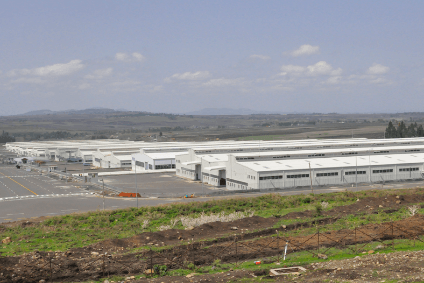
A recruitment drive in Ethiopia’s garment and textile industrial parks has increased union membership by almost 14,000 workers.
The 13,922 workers – of whom 9,802 were women – have come from 27 companies in the Bole Lemi Industrial Park in the capital, Addis Ababa, as well as Dukem and Kombolcha in the North East.

Discover B2B Marketing That Performs
Combine business intelligence and editorial excellence to reach engaged professionals across 36 leading media platforms.
Ethiopia’s industrial parks have been set up by the federal government’s five-year Growth and Transformation Plans to promote industrialisation through light manufacturing.
Three industrial parks have been opened. According to the Industrial Parks Development Corporation, when fully operational, they will employ 35,000 and 84,000 respectively and one will only cater for the garment and textile industries and its value chain.
There are plans to set up over 12 industrial parks across the country, and to promote the growing of cotton so that factories can get their raw materials locally. A 700km electric railway line to link to the port of Djibouti is being built to export goods faster.
Global brands buying from Ethiopia include H&M, Tchibo and PVH. Other buyers are from Bangladesh, China and India. Ethiopia is also a beneficiary of the African Growth and Opportunity Act (AGOA), giving some Sub Saharan African Countries preferential trade terms when exporting to the US.

US Tariffs are shifting - will you react or anticipate?
Don’t let policy changes catch you off guard. Stay proactive with real-time data and expert analysis.
By GlobalDataWhile unions welcome the industrial parks and the investments in the garment and textile sector, they are concerned that wages are low and not enough to meet basic needs.
Entry-level wages average around US$40 in Ethiopia, compared to US$68 in Bangladesh and US$500 in China. According to the Ethiopian Investment Commission the country has amongst the lowest minimum wages in Africa, and over 50m potential young workers below the age of 24.
Further, unions want workers’ rights to be protected and for factories to be safe. Employers are also urged not to withhold dues that belonged to unions.
“The federation is working hard to ensure that the country’s constitution, and ILO Conventions 87 and 98 on the right to organise and collective bargaining are respected. We want workers’ rights and benefits to be protected,” says Mesfin Adenew, president of IndustriAll affiliate the Industrial Federation of Ethiopian Textile, Leather and Garment Workers Trade Unions (IFETLGWU).
The recruitment drive was supported by the Confederation of Ethiopian Trade Unions, FNV Mondiall, ILO, IndustriAll, and Solidaridad.





